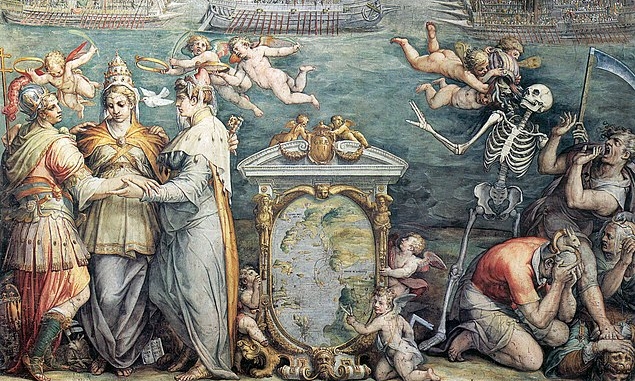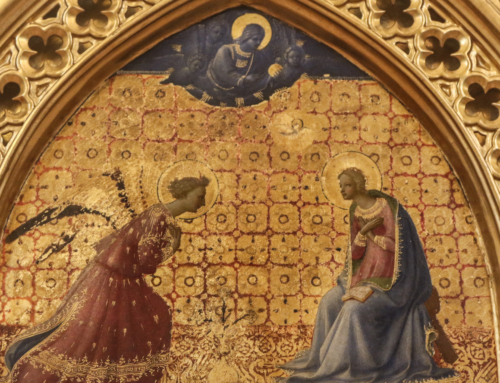When Jesus taught from the mountain, he bade us,
Do not worry about your life, what you will eat [or drink], or about your body, what you will wear. Is not life more than food and the body more than clothing? Look at the birds in the sky; they do not sow or reap, they gather nothing into barns, yet your heavenly Father feeds them. Are not you more important than they? . . . These things the pagans seek. Your heavenly father knows you need them all.
Instead, we are to “seek first the kingdom [of God] and his righteousness, and all these things will be given you besides” (Matt 6:25–26, 32–33).
Perhaps it was this teaching that Pope St. Pius V had in mind when, 450 years ago this month, he credited Europe’s victory at the Battle of Lepanto to her recourse to the Rosary. Perhaps it was this teaching that led him to institute the feast of Our Lady of Victory—now Our Lady of the Rosary—celebrated each year on October 7. Most probably, even before the battle had begun, this Dominican pope thought that if Christians in Europe raised their minds to God, God would protect them from military disaster. And God did.
As St. John Damascene writes in his De Fide Orthodoxa, prayer consists in raising the mind to God (III, 24). The Rosary does just this. It affixes our minds to the life, suffering, and glorification of Christ. For it is he who said, “Whoever has seen me has seen the Father” and “I am in the Father and the Father is in me.” When praying the Rosary, we lift up our minds to God by directing them to the one mediator between God and men. Furthermore, we ponder the mysteries of Jesus’ life through the gaze of his Blessed Mother, who “kept all these things in her heart” (Luke 2:51).
And we do this all while addressing Mary with those sacred words addressed to her at the moment God became man (Rosarium Virginis Mariae, 33). We speak to her, whispering those greetings she heard while she bore Christ in her womb. Then we address her ourselves: Mother of God; Theotokos; God-bearer! It is as if we say, you whom God loves most among all creatures—you whom God chose to carry him in your womb—do not forget us, poor sinners that we are! For Jesus will surely listen to you, the mother whom he chose.
Then, as she did with St. Pius V and Europe 450 years ago, Mary will ferry us to her Son, and nothing else will be necessary.
***
To commemorate the 450th anniversary of the Battle of Lepanto, we wish once again to promote this powerful devotion. This month, each Friday post will be dedicated to one of the Rosary’s four sets of mysteries in the hope that they will bear fruit for those who practice this beautiful devotion.
Promotion of the Rosary is, as many know, dear to the heart of the Dominican. The Dominican knows that the mysteries of Christ’s life and teaching reveal the heart of God. It is only through Christ that we come to know the Father since “no one knows the Father except the Son and anyone to whom the Son wishes to reveal him” (Matt 11:27). Thus, if we are to contemplate God, we must contemplate Christ. Yet the Dominican not only contemplates, but also hands on what he has contemplated to others.
Thus, even though the Rosary is often taken for granted as a part of Catholic life and is not necessary for salvation in the same way that the sacraments are, it nevertheless serves as a most powerful instrument for what is necessary. What is necessary for us is to join ourselves to Christ. And the most powerful lens through which we can ponder Christ and his life is through the eyes of his sinless mother. For Mary “kept all these things in her heart.”
✠
Image: Giorgio Vasari, The Battle of Lepanto.







